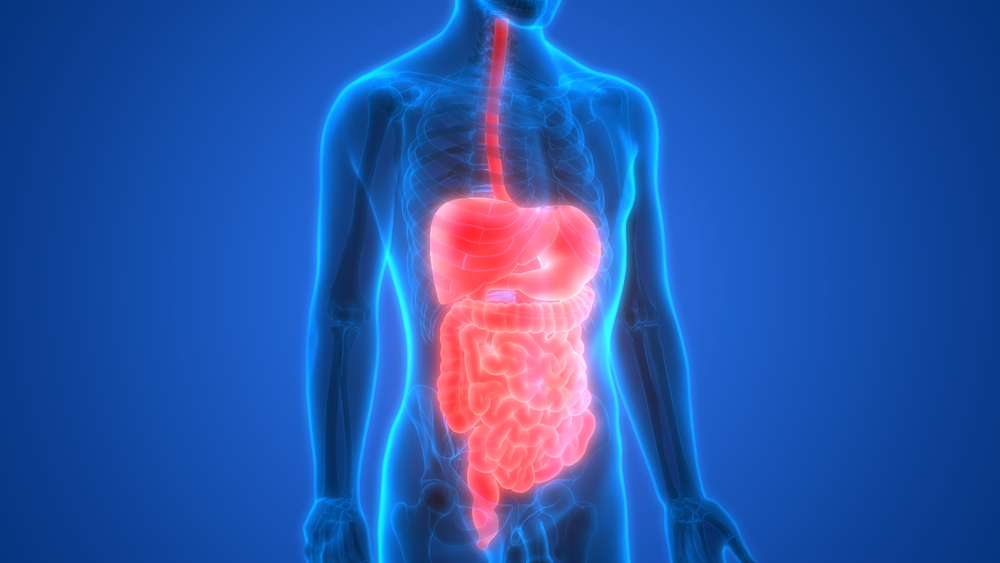Digestive Issues that Arise from Scleroderma

It’s 6 p.m. on a Sunday evening and I’m ready to eat dinner. It’s beneficial to eat early enough to allow food at least three hours to digest before lying down.
My plate is served with everything already cut into small pieces. I grasp the fork at an odd angle and push the handle into my curled fingers, maneuvering my first bite of chicken. I take small bites since there’s not much room inside my tightened mouth.
As I chew and swallow, I have to take small sips of room temperature water to nudge the food down. Ice-cold water contracts my esophagus, making it harder to eat. After drinking, I make sure not to bend over, because if I do, everything feels like it will rapidly come right back out.
When it comes to breakfast, I make sure to drink water before I eat to “wake up” my esophagus. If I forget, it’s torturous trying to swallow.
Myriad bodily functions can become altered when living with a chronic illness. Internal organs seem to operate with more difficulty under the stress of disease. Scleroderma can reach deep into the lining of a digestive tract, making the entire eating process a more complex task.
Some nights in my early 20s ended with whatever greasy, fast food joint was open at the time. It wasn’t a nightly occurrence, but I did indulge in chicken nuggets, cheeseburgers, tacos, and french fries, with extra sauce on the side. Now, I can’t even fathom how my body would react, let alone digest those “guilty pleasures.”
An individual with scleroderma quickly learns what foods do and don’t agree with them. Gastroesophageal reflux disease, or GERD, is a common symptom for which proton pump inhibitors are commonly prescribed to help keep stomach acid down. The esophagus can become constricted over time, which makes it difficult for food to pass down through this important tube. Esophageal dilation is a temporary solution to this. Without a solution, the food might not move down at all, leaving one choking and vomiting. This can result in an esophageal spasm for some patients.
Peristalsis waves are a natural mechanism to help push food down the esophagus. These also start to slow or shut down with scleroderma. In turn, food sits undigested in the stomach without being broken down into nutrients and waste. Luckily, gut-moving medications such as domperidone can aid slow digestion and give the extra push that’s lacking.
In some cases, digestive medications are no match for what’s happening, which may result in a gastroparesis diagnosis. Constant bloating, nausea, and vomiting characterizes this condition. A gastric-emptying test is the best way to pinpoint if gastroparesis is the cause of these problems. If the condition becomes too severe, a feeding tube may be necessary to help the body keep weight on and absorb vital nutrients.
Moving on to the intestinal part of digestion: the bowels. When food sits in the stomach too long, it starts to ferment bacteria, which can result in small intestinal bacterial overgrowth. This causes abdominal cramping and diarrhea. Doctors can test the number of bacteria in one’s colon by ordering a hydrogen breath test. This can direct specialists to prescribe antibiotics that get rid of the overgrowth.
Last but not least, what goes in must come out. Fecal incontinence is an uncomfortable sensation that many patients silently deal with. At the very end of our tract, a sphincter holds feces inside the rectum. This can become loosened with scleroderma, and some feces may leak out, some time after a bowel movement. Rectal exercises, dietary changes, and surgery are all viable options to treat this situation. There are also special liners designed to protect underwear from soiling.
Scleroderma is more than just a skin disease, and it affects many patients inside-out. Gastrointestinal issues are by no means fun, but there are ways to treat them. Finding a good gastroenterologist is the perfect place to start. Take care of your digestive tract — it’s where 80 percent of our immune system lies.
***
Note: Scleroderma News is strictly a news and information website about the disease. It does not provide medical advice, diagnosis, or treatment. This content is not intended to be a substitute for professional medical advice, diagnosis, or treatment. Always seek the advice of your physician or other qualified health provider with any questions you may have regarding a medical condition. Never disregard professional medical advice or delay in seeking it because of something you have read on this website. The opinions expressed in this column are not those of Scleroderma News or its parent company, BioNews Services, and are intended to spark discussion about issues pertaining to scleroderma.








Comments
Gale
Wonderful article Jessica. So proud of you, my friend!!!
Bismita Sahoo
O Jessica may God give you lot of strength. I know what is all this exactly cause my own sister suffers from the same disease and pain.i have no more words.